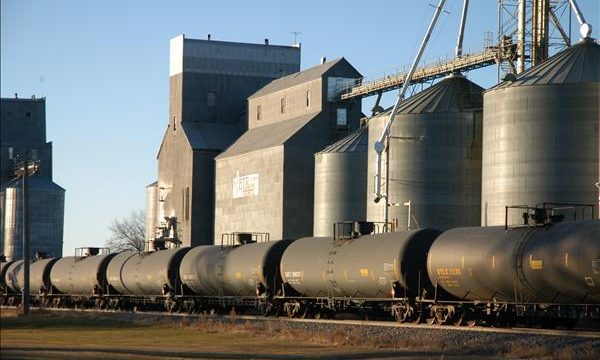2014 Strategy: North Dakota Democrats Want To Drive Wedge Between Agriculture And Oil

Last week North Dakota Democrats got what may be their most serious candidate on the 2014 ballot. Ryan Taylor – a former state Senator from Towner from 2003 to 2011, serving as Minority Leader in the 2011 session – announced his candidacy for Commissioner of Agriculture. He had said in late 2013 that he wouldn’t be running in 2014, but was clearly drawn into the race (despite his claims to the contrary) by a North Dakota Farm Bureau-backed endorsement challenge to Republican incumbent Doug Goehring.
Taylor is no doubt hoping that Goehring, who got nearly 70 percent of the vote in 2010, will be bloodied enough from an intraparty fight to be vulnerable in the general election.
But that alone probably won’t be enough to drive Taylor to victory, and a second strategy from the self-styled cowboy poet is emerging. He hopes to drive a wedge between agriculture and oil interests in the state.
You could hear an echo of the strategy in Taylor’s comments at his campaign launch event in Fargo last week, where he railed against “oil barons”:
“You can’t unleash all that oil and then wonder why the train tracks are full of oil tankers and you can’t get grain on from the elevators in North Dakota and get that product to market,” Taylor said.
Taylor said he decided to run not long after an oil train and a soybean train collided in a fiery derailment just outside of Casselton in December. It symbolized the way the two industries have collided in the state, he said.
“I will not be a rubber stamp for out-of-state oil barons. I’ll stand up for North Dakota,” he said.
Now the North Dakota Farmer’s Union, the left-wing counterpart to the conservative Farm Bureau, is making the same argument (audio at the link):
Farm commodity rail shipments have been running nearly three weeks behind in North Dakota however Burlington Northern Santa Fe has promised to get caught up before summer hits. BNSF officials also wrote Senator Heidi Heitkamp and said they’re pumping $ 250 million into rail upgrades. North Dakota Farmers Union President Mark Watne says it’s good they’re trying to address the problem but thinks it may not come in time to help this year.
Watne says what concerns him is that agriculture has taken a back seat to other industries in priorities for rail service.
When Taylor ran for governor in 2012, a race he lost by a wide margin to Republican Jack Dalrymple, he tried to campaign on the negative aspects of North Dakota’s oil boom. It didn’t work so well. But if he were to drill down to the specifically negative impacts of the oil boom on agriculture, until recently North Dakota’s largest industry, can he get more traction?
It’s hard to say. North Dakota Democrats get most of their support from the state’s urban areas and Indian reservations, areas unlikely to be swayed much by this argument. But then again, rural and western voters are who Democrats need to pick up to win, so maybe this is the right vehicle.
Though, looking at Democrat recruitment for legislative races on the ballot this year, they haven’t done very well putting candidates forward in western North Dakota where you’d think their “impacts of the oil boom” argument would resonate.




